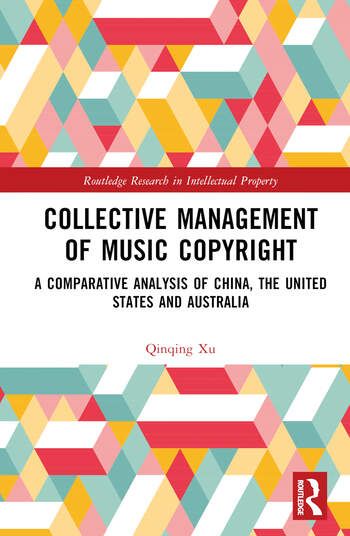
Two of the objectives of the Chinese Copyright Law are to protect the copyright of authors to their literary and artistic works and encourage the creation and dissemination of works. In practice, however, in spite of the existence of the Music Copyright Society of China ('MCSC') that was established to assist with exercising copyright, music creators in China remain in need of help to protect and manage their fragmented copyright. The MCSC was the first collective management organisation ('CMO') in mainland China and is the only CMO in the field of musical works. While there is a large music industry and copyright business in China, the MCSC only had 11,356 members at the end of 2021.
The third amendment of the Chinese Copyright Law was initiated in 2011 and came into effect in June 2021 after a long debate for almost ten years. The discussion of the third amendment has highlighted the controversial topic of collective management of copyright. This book explores the adequacy of the MCSC as an intermediary representing rights for music creators. The main argument developed in this study is that the work of the MCSC for individual composers and lyricists is hampered by shortcomings in the regulatory regime as well as by a lack of members’ rights to participate in the management of their own rights and by the ineffective international cooperation between the MCSC and other musical CMOs overseas.
The analysis is undertaken through a case study approach, comparing the collective management systems of music copyright in China, the United States and Australia and addressing the question of how musical CMOs operate in these countries. Specifically, three perspectives are examined: the regulatory systems designed to limit the misuse of those CMOs’ monopoly, members’ rights in the organisations, and international cooperation between these CMOs.
Overall, the main findings of this book suggest that the MCSC in China could work more effectively to protect music creators’ interests. In contrast, although the operational frameworks of the American Society of Composers, Authors and Publishers ('ASCAP') and the Broadcasting Broadcast Music, Inc. ('BMI') in the United States and the Australasian Performing Right Association ('APRA') in Australia are not perfect models, the systems in these two countries may at least provide reference points for potential improvement of the regime of the MCSC. The research recommends three courses of action: strengthening the regulatory design overseeing the MCSC’s monopoly, clarifying the relationship between the MCSC and its members while providing the members with the right to manage their own copyright, and improving the international cooperation between the MCSC and CMOs in other countries.